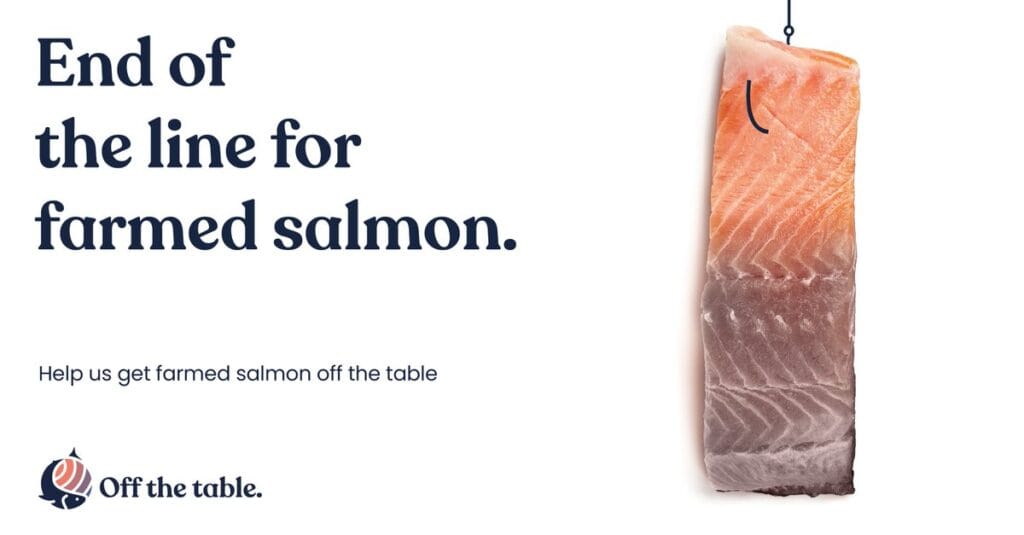Take farmed salmon off the table
Salmon has become one of the most popular dishes in restaurants and at home, but its popularity has come at a cost for the environment, fish welfare and the health of the planet. Scottish farmed salmon has no place on a sustainable menu, be it in a restaurant, deli, fishmongers, or at home. It’s time to take farmed salmon off the menu.
There is no question that the salmon on your plate comes at a huge cost, not only to our wild Atlantic salmon, sea trout and wrasse, but to the planet. On average, 1 in 4 farmed salmon die before harvest on Scottish salmon farms up and down the west coast and islands of Scotland. A 25% mortality rate (equivalent to millions of farmed salmon) would not be accepted for any type of terrestrial farming – so why is it seen as acceptable in salmon aquaculture?

In 2018, an independent Government enquiry found that the Scottish salmon farming sector was struggling to address the multiple challenges of controlling sea lice, lowering fish mortality rates and reducing the sector’s impact on the environment. Increasing mortality rates since the report suggests the industry is struggling to address these issues, with concurrent negative impacts on wild fish and the environment; this includes sea lice parasites and use of harmful chemicals as treatments for lice and disease. Wild Atlantic salmon numbers have plummeted by 70% in the last 20 years – why is more not being done to protect these fish, and to reduce the harm this industry causes to our aquatic wildlife on the west coast of Scotland? The need to address these issues is urgent; sustainable food systems, without overt harm to aquatic ecosystems, must be developed to sustain our growing population.

Off the table is a coalition campaign, bringing together NGOs working across the many issues related to salmon farming, from local community groups in Scotland, to international NGOs. At WildFish, we remain steadfast in our goal to protect wild fish populations and their habitats across the UK. It’s my hope that Off the table will raise awareness of the negative impacts of salmon farming – for chefs, restaurants, diners, consumers and beyond. In doing so, at WildFish we can apply increasing pressure on the Scottish government, certification and regulatory bodies to end the fundamentally unsustainable practice of open-net salmon farming – before it’s too late for our wild Atlantic salmon, sea trout and the integrity of our coastal marine environment.

What can you do?
- Spread the word about the take salmon off the table campaign.
- Each less fish or find alternative fish species to consume.
- Eat lower trophic level fish – fish and shellfish that are lower down the food chain.
- Explore alternative options for aquaculture. Closed containment could be an alternative to relieve the environmental impact of salmon farming, but there are issues with industry scale, technology, welfare and carbon footprint/resources use (water, FMFO for feed) that need to be addressed.
